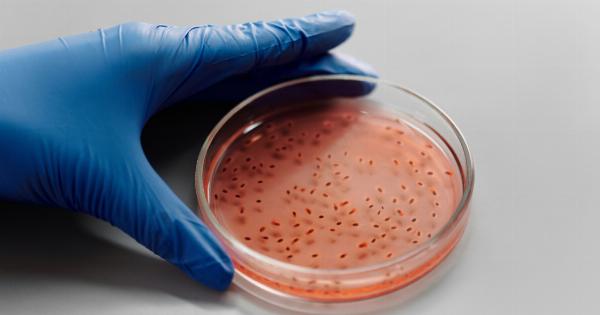Longevity has been a hot topic for centuries. Human beings have been on an eternal quest to discover the secret ingredients that make up a long and healthy life.
In recent times, scientists have uncovered fascinating research about the link between DNA and longevity. In this article, we will explore how the DNA code holds the key to unlocking the secrets of a long life.
What is DNA?
DNA or Deoxyribonucleic acid is the blueprint of life. It is a molecule that encodes genetic instructions for the development, growth, and functioning of all living organisms.
DNA is composed of four nitrogenous bases – Adenine (A), Guanine (G), Cytosine (C), and Thymine (T), strung together in a specific order to create a code. This code determines everything from the color of your eyes to your predisposition to certain diseases.
What is the Link Between DNA and Longevity?
There is mounting evidence suggesting that genes play a crucial role in determining how long we live. Researchers have identified several genes commonly associated with longevity.
They have also found that people with long-lived parents or siblings are more likely to live a long life themselves. In fact, studies suggest that genetics can account for up to 50% of the variation in lifespan between individuals.
The Science of Aging and DNA
The aging process is a complex interplay between environmental and genetic factors. As we age, our DNA undergoes a process called methylation, where methyl groups attach themselves to the DNA molecule and change its function.
This process is entirely normal and occurs in all cells in our body. However, it is believed that changes in methylation patterns can lead to gene expression changes that contribute to aging and age-related diseases.
Can We Delay the Aging Process?
While researchers have yet to find a way to reverse the aging process entirely, they have uncovered several lifestyle and environmental factors that can help delay it. These factors include:.
- Eating a healthy diet rich in fruits, vegetables, and whole grains
- Maintaining a healthy weight
- Regular physical activity
- Reducing exposure to environmental pollutants
- Managing stress levels
- Getting enough sleep
Several studies have shown that people who follow these lifestyle habits tend to live longer and healthier lives. The good news is that many of these habits are under our control, and we can take steps to incorporate them into our lives.
The Role of Genetics in Developing Anti-Aging Therapies
Thanks to advances in genetic research, scientists are discovering new ways to delay the aging process. One approach involves developing anti-aging therapies that target specific genes or molecules involved in the aging process.
For instance, researchers are exploring the possibility of using CRISPR-Cas9 gene editing technology to modify the DNA of cells to promote longevity. They are also investigating compounds such as rapamycin, which has been shown to extend lifespan in mice.
Understanding Telomeres and Aging
Telomeres are another area of interest in anti-aging research. Telomeres are the protective caps at the end of each chromosome that prevent them from fusing together. They act as a sort of biological clock that shortens each time the cell divides.
When the telomeres reach a critical length, the cell can no longer divide and enters a state of senescence or aging.
Several studies have suggested that telomeres may play a significant role in determining how long we live. Researchers have found that people with longer telomeres tend to live longer and healthier lives than those with shorter telomeres.
The good news is that lifestyle factors such as exercise, diet, and stress management can help preserve telomere length and delay the onset of aging.
The Future of Anti-Aging Research
While we have made great strides in understanding the genetics of aging, there is still much to learn.
The field of pharmacogenomics – the study of how genetics influence the body’s response to drugs – is opening up new avenues for anti-aging research. By identifying genetic biomarkers that predict how individuals will respond to particular therapies, scientists hope to develop personalized anti-aging treatments that can target specific gene variants linked to longevity.
Conclusion
The DNA code holds the key to unlocking the secrets of a long and healthy life. While we may not be able to turn back the clock entirely, we can take steps to delay the aging process and live longer, healthier lives.
By understanding the genetics of aging, we can develop personalized anti-aging therapies that target the underlying causes of aging and promote longevity.






























